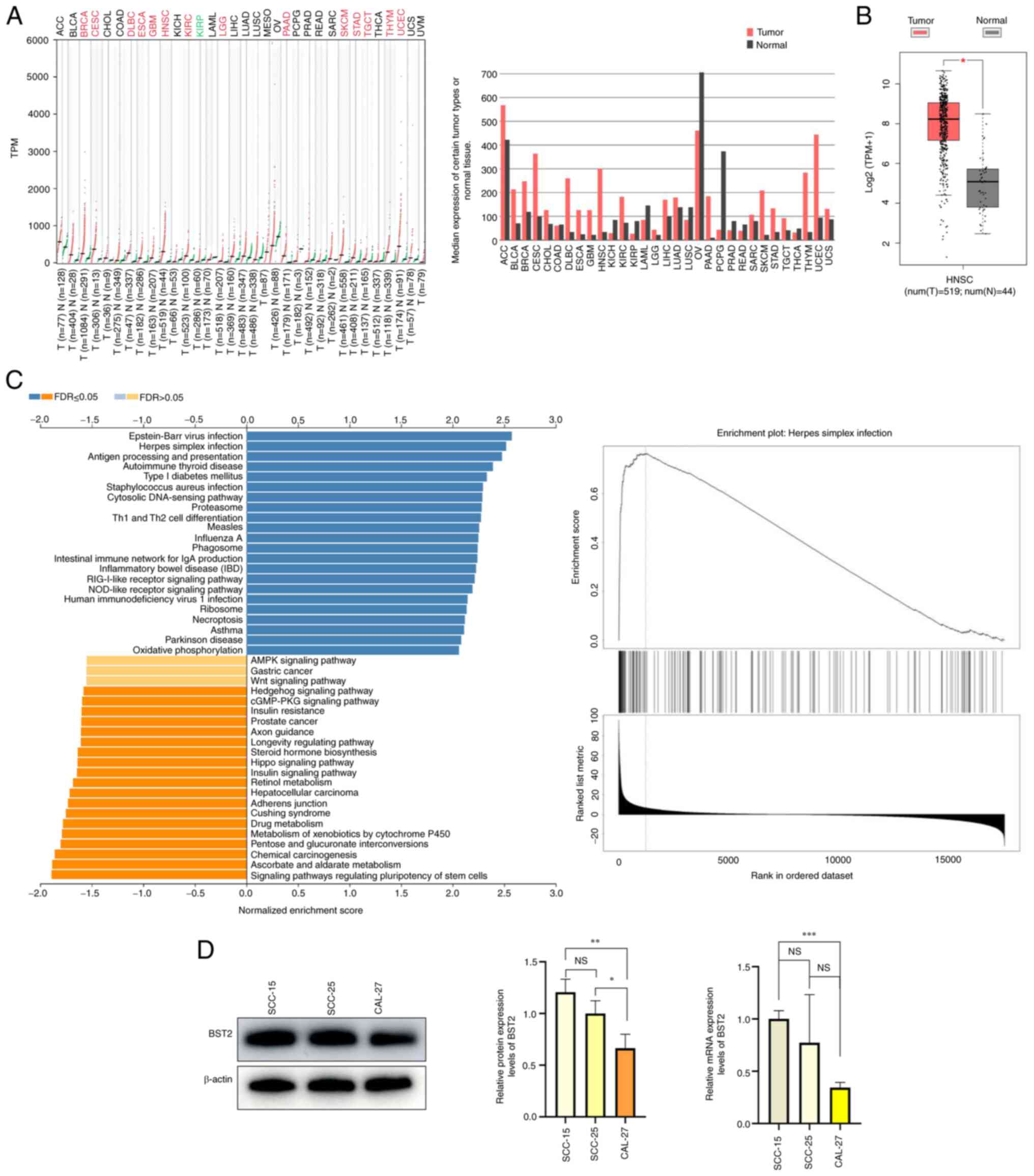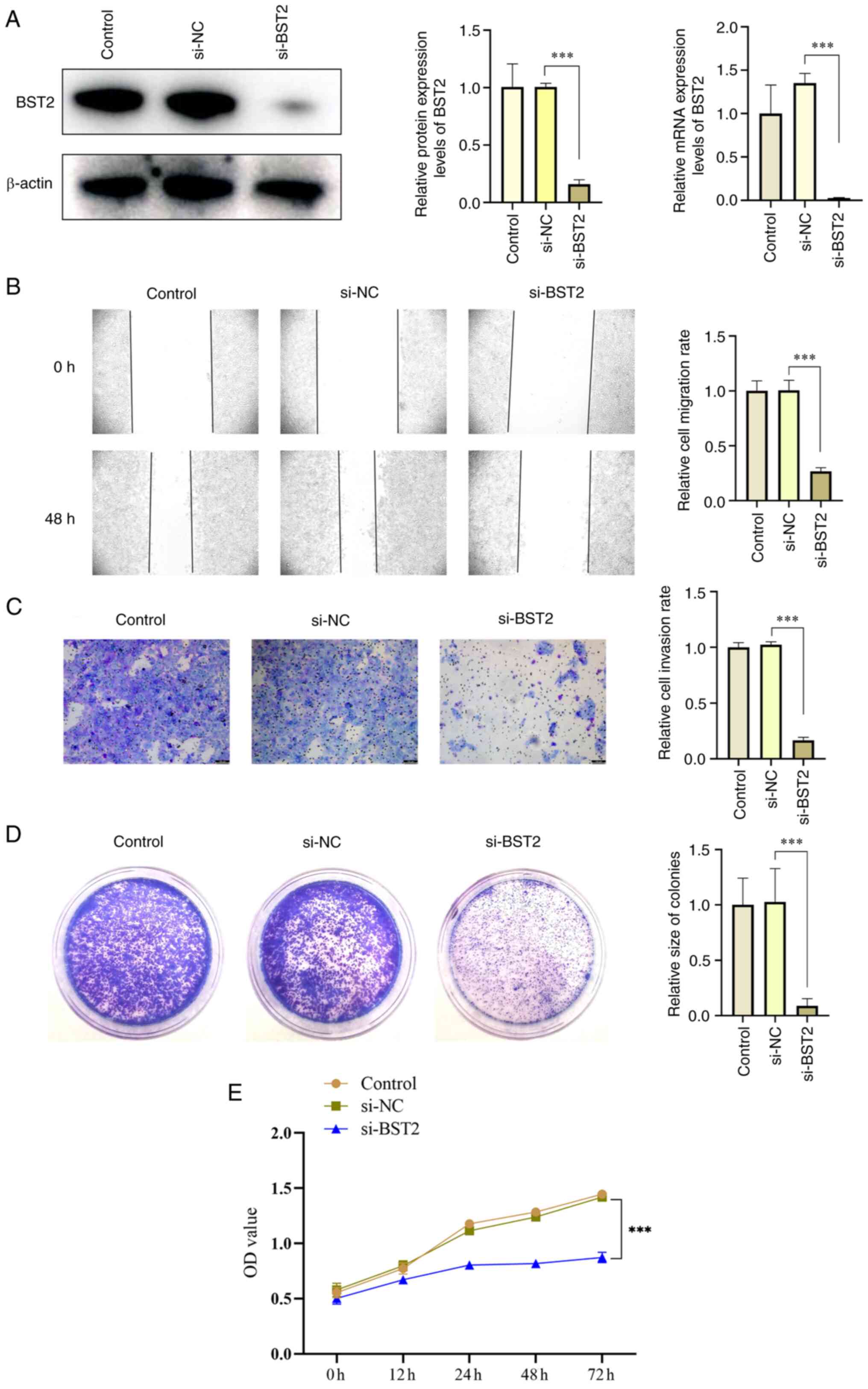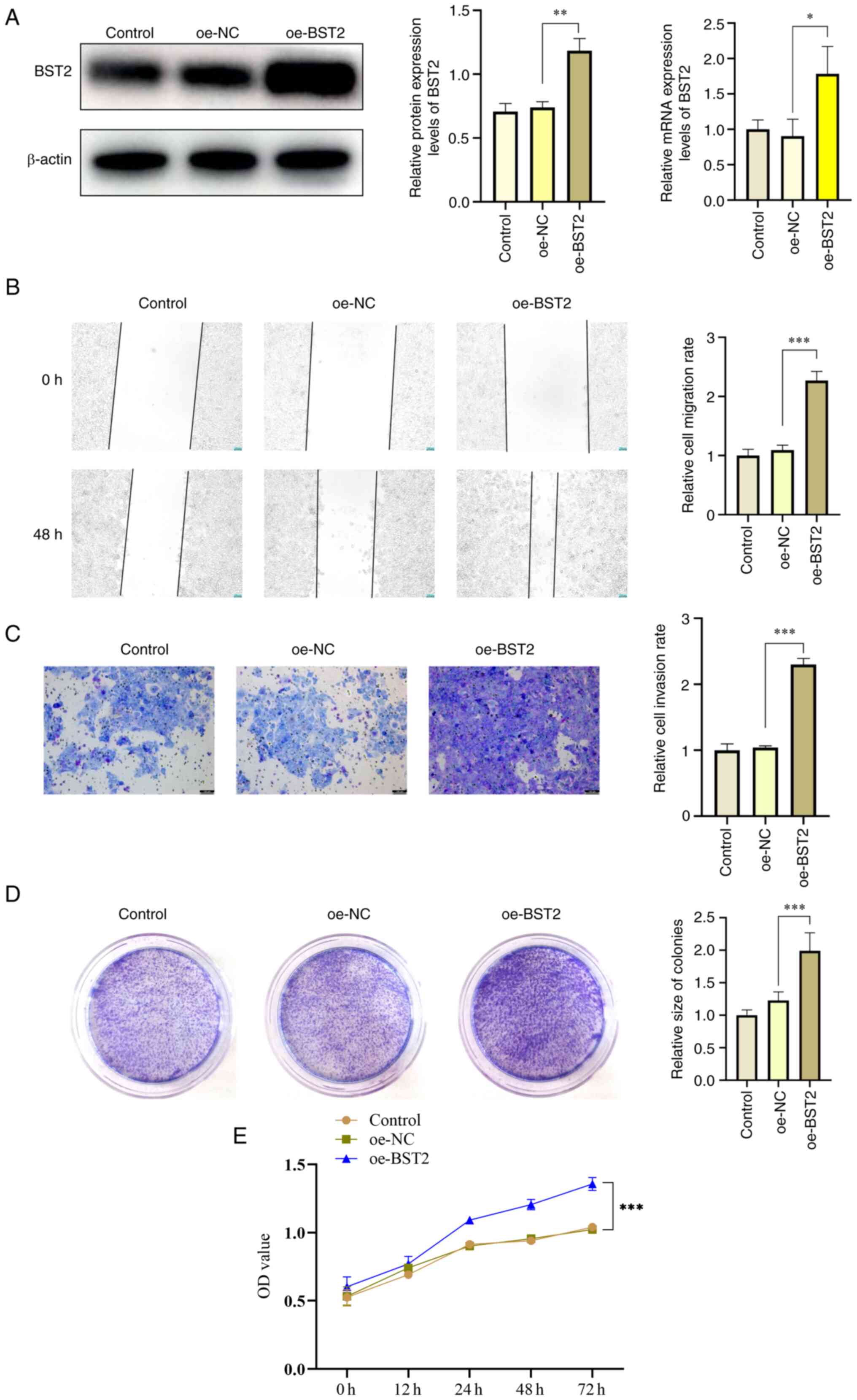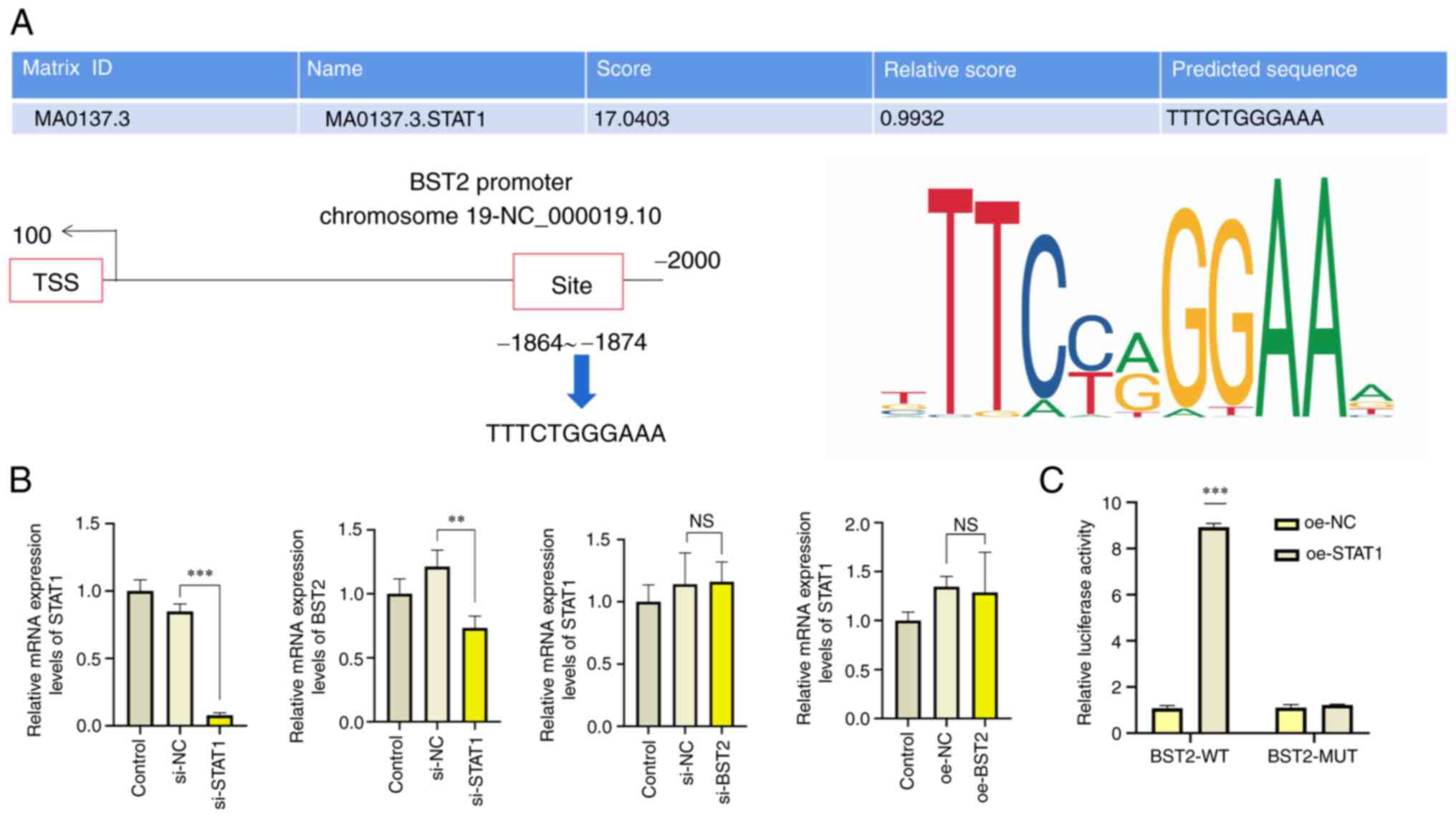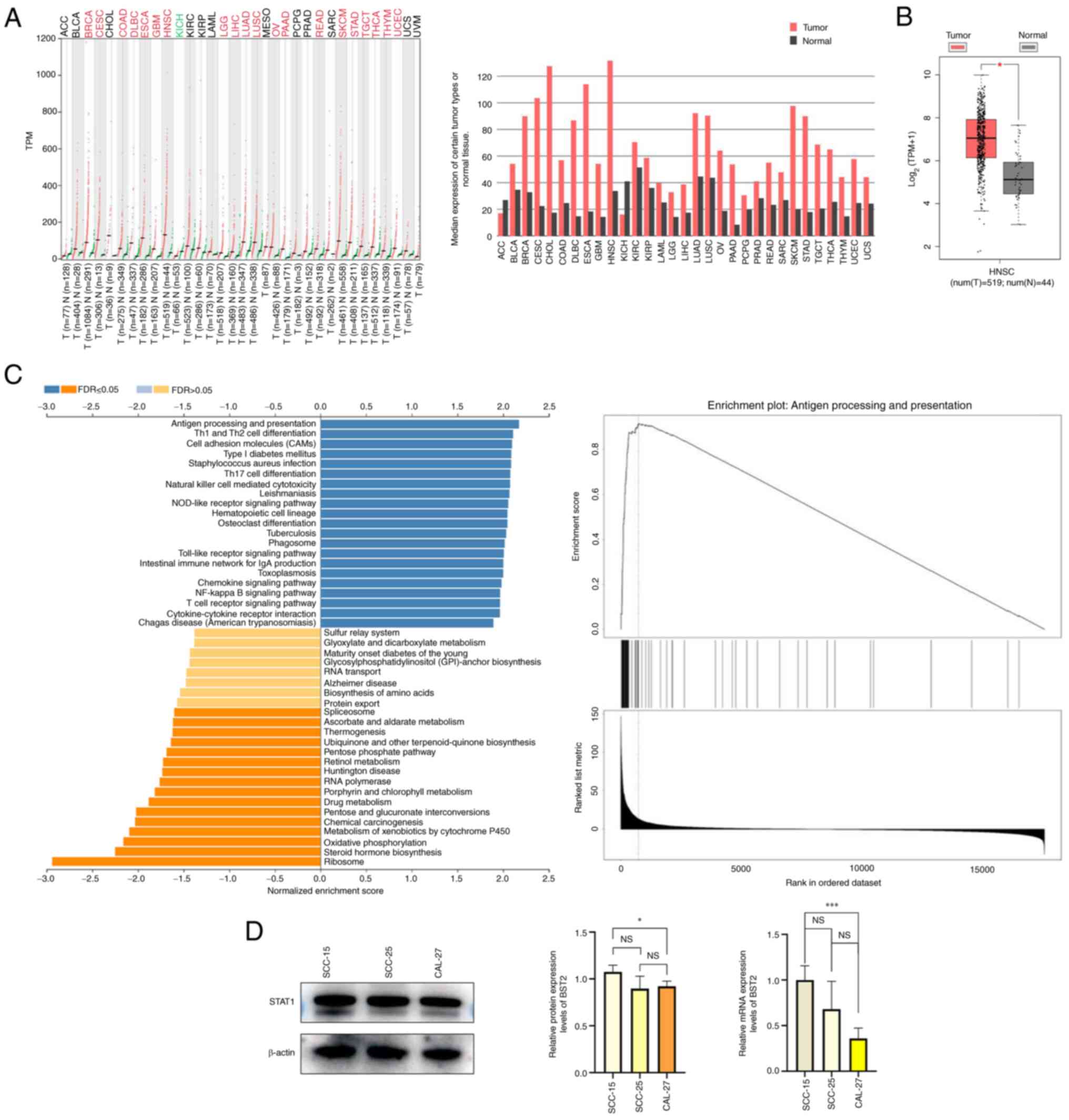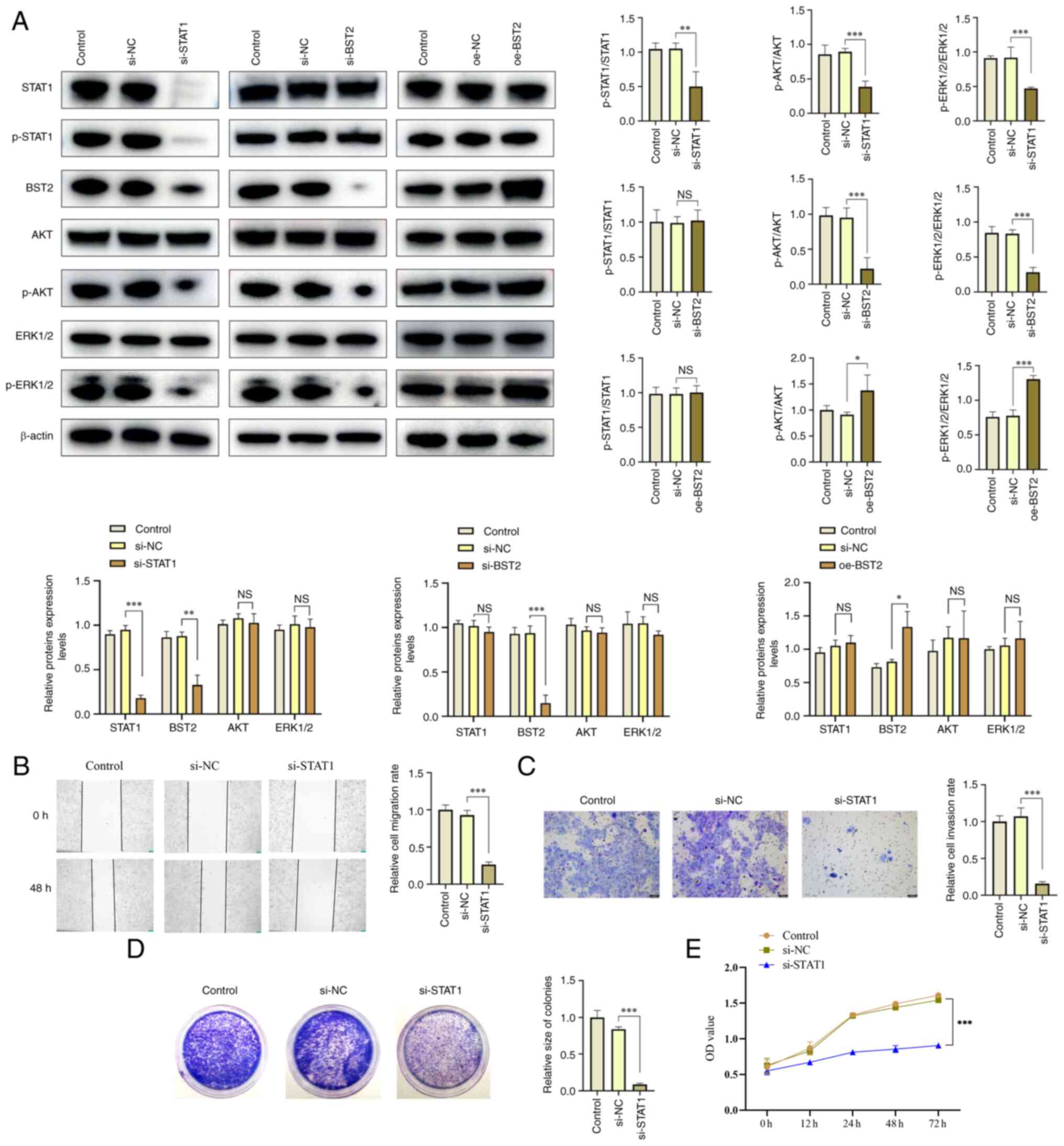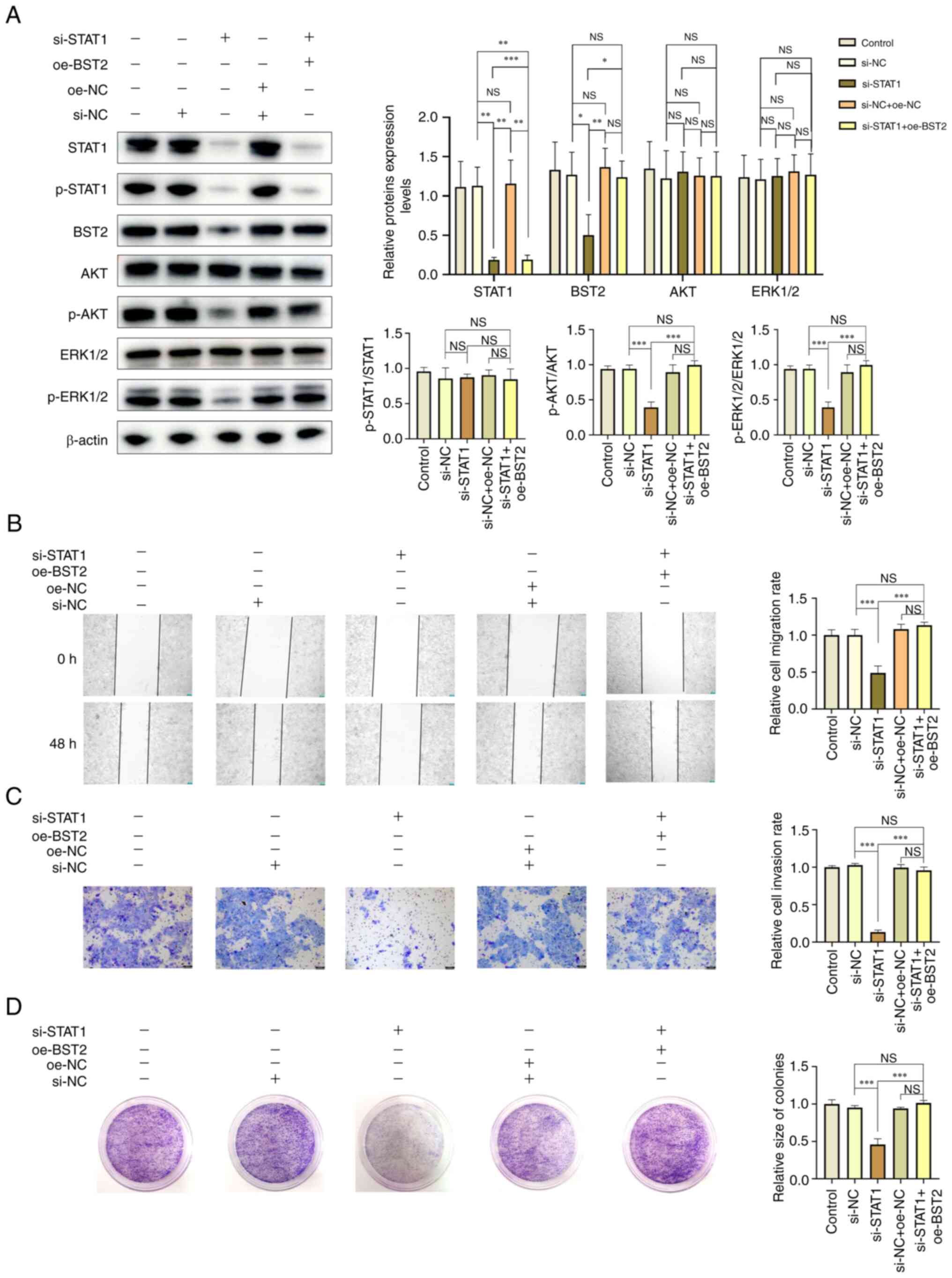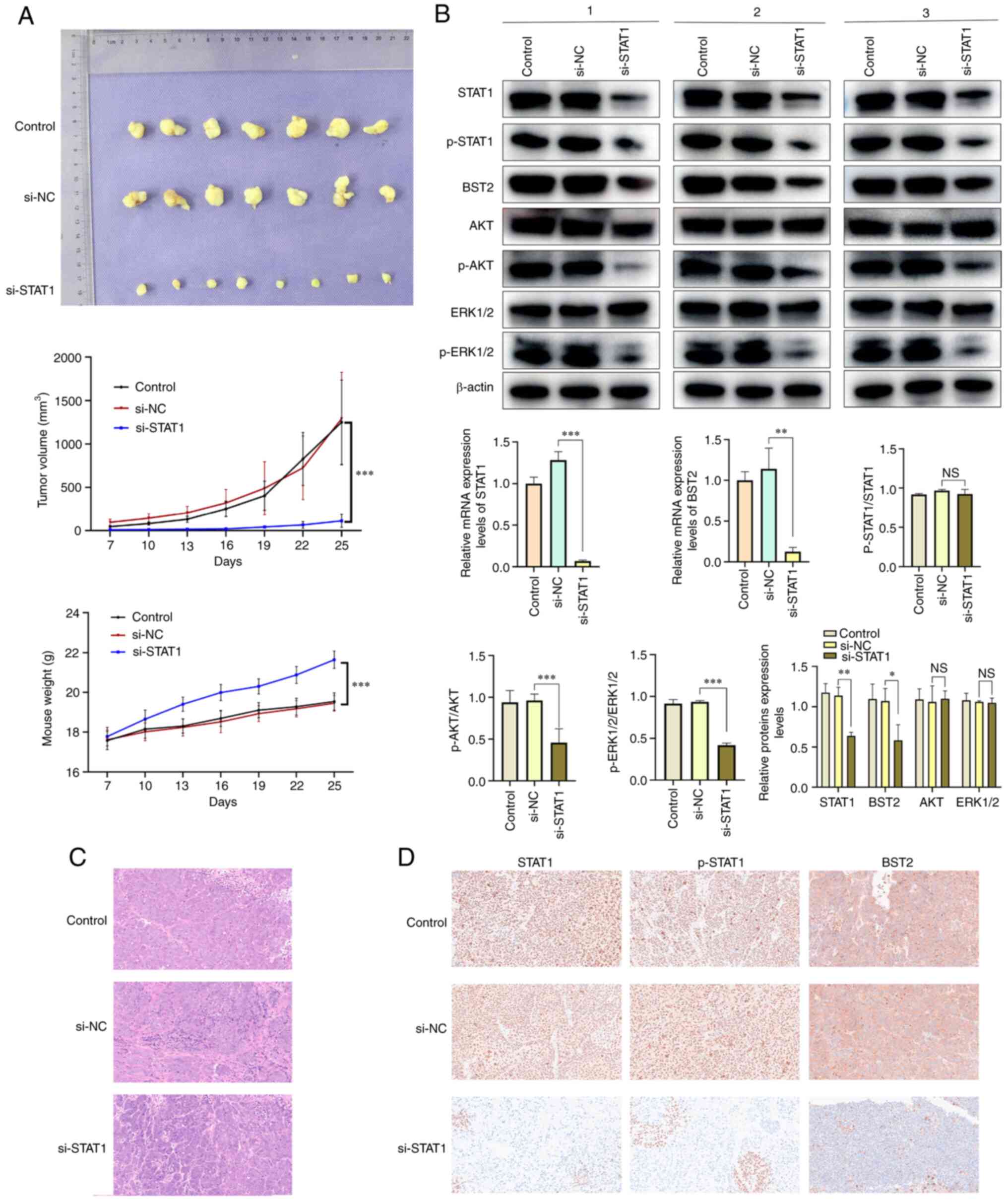|
1
|
Sung H, Ferlay J, Siegel RL, Laversanne M,
Soerjomataram I, Jemal A and Bray F: Global cancer statistics 2020:
GLOBOCAN estimates of incidence and mortality worldwide for 36
cancers in 185 countries. CA Cancer J Clin. 71:209–249. 2021.
View Article : Google Scholar : PubMed/NCBI
|
|
2
|
Xia C, Dong X, Li H, Cao M, Sun D, He S,
Yang F, Yan X, Zhang S, Li N and Chen W: Cancer statistics in China
and United States, 2022: profiles, trends, and determinants. Chin
Med J (Engl). 135:584–590. 2022. View Article : Google Scholar : PubMed/NCBI
|
|
3
|
Sun Z, Sun X, Chen Z, Du J and Wu Y: Head
and neck squamous cell carcinoma: Risk factors, molecular
alterations, immunology and peptide vaccines. Int J Pept Res Ther.
28:192022. View Article : Google Scholar
|
|
4
|
Boldrup L, Coates PJ, Laurell G, Wilms T,
Fahraeus R and Nylander K: Downregulation of miRNA-424: A sign of
field cancerisation in clinically normal tongue adjacent to
squamous cell carcinoma. Br J Cancer. 112:1760–1765. 2015.
View Article : Google Scholar : PubMed/NCBI
|
|
5
|
Chow LQM: Head and Neck Cancer. N Engl J
Med. 382:60–72. 2020. View Article : Google Scholar : PubMed/NCBI
|
|
6
|
Gavrielatou N, Doumas S, Economopoulou P,
Foukas PG and Psyrri A: Biomarkers for immunotherapy response in
head and neck cancer. Cancer Treat Rev. 84:1019772020. View Article : Google Scholar : PubMed/NCBI
|
|
7
|
Horton JD, Knochelmann HM, Day TA, Paulos
CM and Neskey DM: Immune evasion by head and neck cancer:
Foundations for combination therapy. Trends Cancer. 5:208–232.
2019. View Article : Google Scholar : PubMed/NCBI
|
|
8
|
Fan T, Wang X, Zhang S, Deng P, Jiang Y,
Liang Y, Jie S, Wang Q, Li C, Tian G, et al: NUPR1 promotes the
proliferation and metastasis of oral squamous cell carcinoma cells
by activating TFE3-dependent autophagy. Signal Transduct Target
Ther. 7:1302022. View Article : Google Scholar : PubMed/NCBI
|
|
9
|
Kuang CM, Fu X, Hua YJ, Shuai WD, Ye ZH,
Li Y, Peng QH, Li YZ, Chen S, Qian CN, et al: BST2 confers
cisplatin resistance via NF-κB signaling in nasopharyngeal cancer.
Cell Death Dis. 8:e28742017. View Article : Google Scholar
|
|
10
|
Presle A, Frémont S, Salles A, Commere PH,
Sassoon N, Berlioz-Torrent C, Gupta-Rossi N and Echard A: The viral
restriction factor tetherin/BST2 tethers cytokinetic midbody
remnants to the cell surface. Curr Biol. 31:2203–2213.e5. 2021.
View Article : Google Scholar : PubMed/NCBI
|
|
11
|
Pan XB, Qu XW, Jiang D, Zhao XL, Han JC
and Wei L: BST2/Tetherin inhibits hepatitis C virus production in
human hepatoma cells. Antiviral Res. 98:54–60. 2013. View Article : Google Scholar : PubMed/NCBI
|
|
12
|
Cai D, Cao J, Li Z, Zheng X, Yao Y, Li W
and Yuan Z: Up-regulation of bone marrow stromal protein 2 (BST2)
in breast cancer with bone metastasis. BMC Cancer. 9:1022009.
View Article : Google Scholar : PubMed/NCBI
|
|
13
|
Levy DE, Kessler DS, Pine R and Darnell JE
Jr: Cytoplasmic activation of ISGF3, the positive regulator of
interferon-alpha-stimulated transcription, reconstituted in vitro.
Genes Dev. 3:1362–1371. 1989. View Article : Google Scholar : PubMed/NCBI
|
|
14
|
Knapek KJ, Georges HM, Van Campen H,
Bishop JV, Bielefeldt-Ohmann H, Smirnova NP and Hansen TR: Fetal
lymphoid organ immune responses to transient and persistent
infection with Bovine viral Diarrhea virus. Viruses. 12:8162020.
View Article : Google Scholar : PubMed/NCBI
|
|
15
|
Vasaikar SV, Straub P, Wang J and Zhang B:
LinkedOmics: Analyzing multi-omics data within and across 32 cancer
types. Nucleic. Acids Res. 46:D956–D963. 2018. View Article : Google Scholar
|
|
16
|
Liu J, Jiang X, Zou A, Mai Z, Huang Z, Sun
L and Zhao J: circIGHG-induced epithelial-to-mesenchymal transition
promotes oral squamous cell carcinoma progression via
miR-142-5p/IGF2BP3 signaling. Cancer Res. 81:344–355. 2021.
View Article : Google Scholar
|
|
17
|
Cao M, Shi E, Wang H, Mao L, Wu Q, Li X,
Liang Y, Yang X, Wang Y and Li C: Personalized targeted therapeutic
strategies against oral squamous cell carcinoma. An evidence-based
review of literature. Int J Nanomedicine. 17:4293–4306. 2022.
View Article : Google Scholar : PubMed/NCBI
|
|
18
|
Chen X, Liu Q, Chen Y, Wang L, Yang R,
Zhang W, Pan X, Zhang S, Chen C, Wu T, et al: Carboxylesterase 2
induces mitochondrial dysfunction via disrupting lipid homeostasis
in oral squamous cell carcinoma. Mol Metab. 65:1016002022.
View Article : Google Scholar : PubMed/NCBI
|
|
19
|
Haidari S, Obermeier KT, Kraus M, Otto S,
Probst FA and Liokatis P: Nodal disease and survival in oral
cancer: Is occult metastasis a burden factor compared to
preoperatively nodal positive neck? Cancers (Basel). 14:42412022.
View Article : Google Scholar : PubMed/NCBI
|
|
20
|
Chen X, Chen DR, Liu H, Yang L, Zhang Y,
Bu LL, Sun ZJ and Cai L: Local delivery of gambogic acid to improve
anti-tumor immunity against oral squamous cell carcinoma. J Control
Release. 351:381–393. 2022. View Article : Google Scholar : PubMed/NCBI
|
|
21
|
Ju WT, Xia RH, Zhu DW, Dou SJ, Zhu GP,
Dong MJ, Wang LZ, Sun Q, Zhao TC, Zhou ZH, et al: A pilot study of
neoadjuvant combination of anti-PD-1 camrelizumab and VEGFR2
inhibitor apatinib for locally advanced resectable oral squamous
cell carcinoma. Nat Commun. 13:53782022. View Article : Google Scholar : PubMed/NCBI
|
|
22
|
Poell JB, Wils LJ, Brink A, Dietrich R,
Krieg C, Velleuer E, Evren I, Brouns ER, de Visscher JG, Bloemena
E, et al: Oral cancer prediction by noninvasive genetic screening.
Int J Cancer. 152:227–238. 2022. View Article : Google Scholar : PubMed/NCBI
|
|
23
|
de Wit JG, van Schaik JE, Voskuil FJ, Vonk
J, de Visscher SAHJ, Schepman KP, van der Laan BFAM, Doff JJ, van
der Vegt B, Plaat BEC, et al: Comparison of narrow band and
fluorescence molecular imaging to improve intraoperative tumour
margin assessment in oral cancer surgery. Oral Oncol.
134:1060992022. View Article : Google Scholar : PubMed/NCBI
|
|
24
|
Sun Y, Zhou Q, Sun J, Bi W, Li R, Wu X, Li
N, Song L, Yang F and Yu Y: DDX59-AS1 is a prognostic biomarker and
correlated with immune infiltrates in OSCC. Front Genet.
13:8927272022. View Article : Google Scholar : PubMed/NCBI
|
|
25
|
Wang SM, Huang KJ and Wang CT: Severe
acute respiratory syndrome coronavirus spike protein counteracts
BST2-mediated restriction of virus-like particle release. J Med
Virol. 91:1743–1750. 2019. View Article : Google Scholar : PubMed/NCBI
|
|
26
|
Mahauad-Fernandez WD and Okeoma CM:
Cysteine-linked dimerization of BST-2 confers anoikis resistance to
breast cancer cells by negating proapoptotic activities to promote
tumor cell survival and growth. Cell Death Dis. 8:e26872017.
View Article : Google Scholar : PubMed/NCBI
|
|
27
|
Yu H, Pardoll D and Jove R: STATs in
cancer inflammation and immunity: A leading role for STAT3. Nat Rev
Cancer. 9:798–809. 2009. View Article : Google Scholar : PubMed/NCBI
|
|
28
|
Seidel HM, Milocco LH, Lamb P, Darnell JE
Jr, Stein RB and Rosen J: Spacing of palindromic half sites as a
determinant of selective STAT (signal transducers and activators of
transcription) DNA binding and transcriptional activity. Proc Natl
Acad Sci USA. 92:3041–3045. 1995. View Article : Google Scholar : PubMed/NCBI
|
|
29
|
Wong GL, Manore SG, Doheny DL and Lo HW:
STAT family of transcription factors in breast cancer: Pathogenesis
and therapeutic opportunities and challenges. Semin Cancer Biol.
86:84–106. 2022. View Article : Google Scholar : PubMed/NCBI
|
|
30
|
Feng J, Li Y, Zhu L, Zhao Q, Li D, Li Y
and Wu T: STAT1 mediated long non-coding RNA LINC00504 influences
radio-sensitivity of breast cancer via binding to TAF15 and
stabilizing CPEB2 expression. Cancer Biol Ther. 22:630–639. 2021.
View Article : Google Scholar : PubMed/NCBI
|
|
31
|
Gu Y, Wang R, Chen P, Li S, Chai X, Chen
C, Liu Y, Cao Y, Lv D, Hong Z, et al: In situ synthesis and
unidirectional insertion of membrane proteins in
liposome-immobilized silica stationary phase for rapid preparation
of microaffinity chromatography. Acta Pharm Sin B. 12:3682–3693.
2022. View Article : Google Scholar : PubMed/NCBI
|
|
32
|
Mao X, Wang X, Jin M, Li Q, Jia J, Li M,
Zhou H, Liu Z, Jin W, Zhao Y and Luo Z: Critical involvement of
lysyl oxidase in seizure-induced neuronal damage through
ERK-Alox5-dependent ferroptosis and its therapeutic implications.
Acta Pharm Sin B. 12:3513–3528. 2022. View Article : Google Scholar : PubMed/NCBI
|
|
33
|
Jeremiah N, Ferran H, Antoniadou K, De
Azevedo K, Nikolic J, Maurin M, Benaroch P and Manel N: RELA tunes
innate-like interferon I/III responses in human T cells. J Exp Med.
220:e202206662023. View Article : Google Scholar : PubMed/NCBI
|
|
34
|
Ivashkiv LB: IFNγ: Signalling, epigenetics
and roles in immunity, metabolism, disease and cancer
immunotherapy. Nat Rev Immunol. 18:545–558. 2018. View Article : Google Scholar : PubMed/NCBI
|
|
35
|
Lau CM, Adams NM, Geary CD, Weizman OE,
Rapp M, Pritykin Y, Leslie CS and Sun JC: Epigenetic control of
innate and adaptive immune memory. Nat Immunol. 19:963–972. 2018.
View Article : Google Scholar : PubMed/NCBI
|
|
36
|
Yang J, Zhang Q, Wang J, Lou Y, Hong Z,
Wei S, Sun K, Wang J, Chen Y, Sheng J, et al: Dynamic profiling of
immune micro-environment during pancreatic cancer development
suggests early intervention and combination strategy of
immunotherapy. EBioMedicine. 78:1039582022. View Article : Google Scholar
|
|
37
|
Cao W and Bover L: Signaling and ligand
interaction of ILT7: receptor-mediated regulatory mechanisms for
plasmacytoid dendritic cells. Immunol Rev. 234:163–176. 2010.
View Article : Google Scholar : PubMed/NCBI
|
|
38
|
Feketshane Z, Adeyemi SA, Ubanako P,
Ndinteh DT, Ray SS, Choonara YE and Aderibigbe BA: Dissolvable
sodium alginate-based antibacterial wound dressing patches: Design,
characterization, and in vitro biological studies. Int J Biol
Macromol. 1234602023. View Article : Google Scholar : PubMed/NCBI
|
|
39
|
Zhang Y, Zhang Z, Chen L and Zhang X:
Tumor cells-derived conditioned medium induced pro-tumoral
phenotypes in macrophages through calcium-nuclear factor κB
interaction. BMC Cancer. 22:13272022. View Article : Google Scholar
|
|
40
|
Ren X, Wang D, Zhang G, Zhou T, Wei Z,
Yang Y, Zheng Y, Lei X, Tao W, Wang A, et al: Nucleic DHX9
cooperates with STAT1 to transcribe interferon-stimulated genes.
Sci Adv. 9:eadd50052023. View Article : Google Scholar : PubMed/NCBI
|
|
41
|
Gringhuis SI, Kaptein TM, Remmerswaal EBM,
Drewniak A, Wevers BA, Theelen B, D'Haens GRAM, Boekhout T and
Geijtenbeek TBH: Fungal sensing by dectin-1 directs the
non-pathogenic polarization of TH17 cells through
balanced type I IFN responses in human DCs. Nat Immunol.
23:1735–1748. 2022. View Article : Google Scholar : PubMed/NCBI
|















